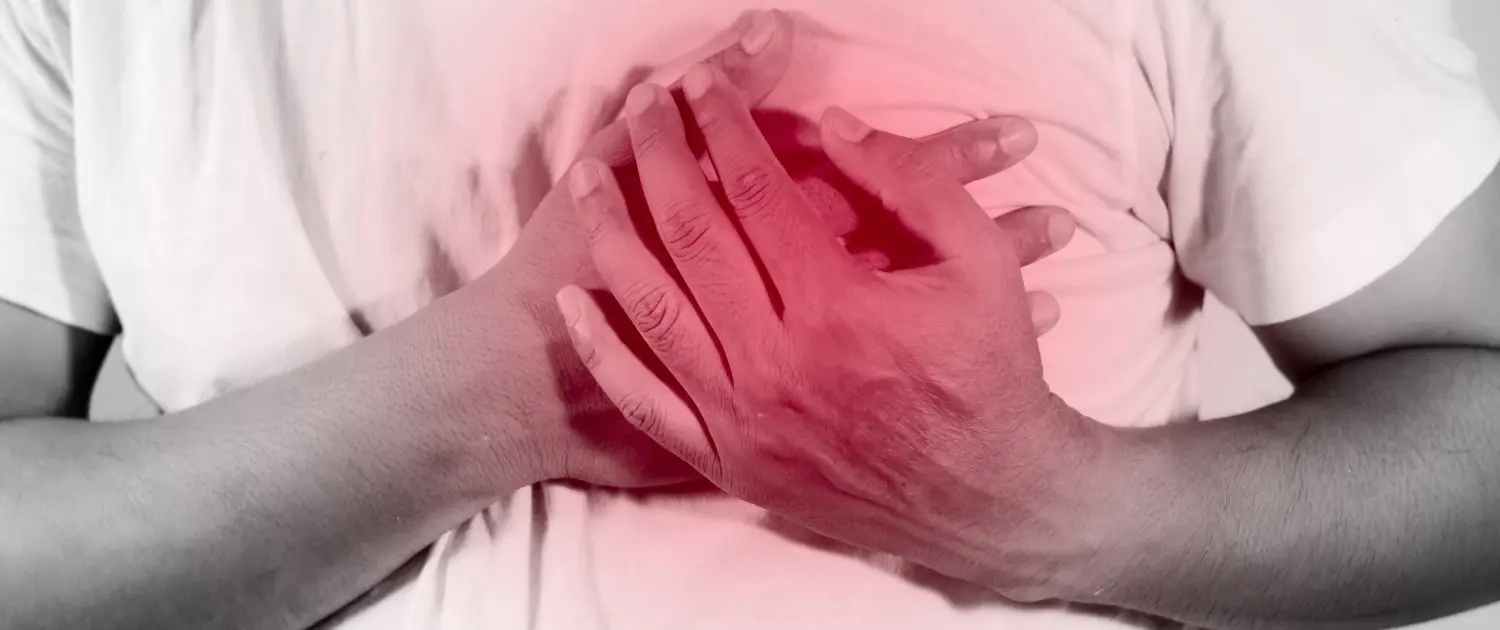What is Psychological Heart Palpitations? What are the Symptoms?
Heart palpitations are when the heartbeat becomes rapid or irregular and is clearly felt. Psychological heart palpitations are rapid or irregular beating of the heart triggered by emotional states such as anxiety or stress.
What is Psychological Heart Palpitations?
Psychological stress can cause both heart pain and palpitations. For “How does psychological heart pain happen?“, these types of pain and palpitations can occur when a person feels a fluttering or strong beating in the chest. This condition, which is usually not dangerous, is more common during anxiety and panic attacks. Heart palpitations can be common, especially at night when panic attack symptoms occur. Palpitations occur as part of the body’s coping mechanism for stress. These physical reactions cause a person to feel palpitations in the heart. It is not only palpitations and pain, but can also lead a person to search for an answer to the question “What causes heart compression?“. Because the feeling of heart compression can often be caused by psychological reasons.
What are the Symptoms of Psychological Heart Palpitations?
Psychological heart palpitations usually occur in times of stress and anxiety, causing the following symptoms
- Tachycardia (heart palpitations),
- Strong heartbeat,
- Chest and heart tightness,
- Psychological breathlessness.
These symptoms are physical manifestations of stress and anxiety and usually do not pose a serious health problem. However, arrhythmia, which can also be perceived as heart palpitations, should not be confused with psychological factors. Arrhythmia is a condition that needs to be treated. For this reason, when heart palpitations occur, it should be consulted with a health professional “Why does arrhythmia occur?” without ignoring it, thinking that it is due to stress.
What Causes Psychological Heart Palpitations?
Stressful events or constant anxiety cause the body to release stress hormones. Hormones such as adrenaline increase the heart rate. Anxiety and stress also stimulate the body’s autonomic nervous system, causing the heart to beat faster and stronger. Learning “What causes palpitations?” prevents a person from delaying medical intervention in the presence of an emergency. Because palpitations can be an indicator not only of psychological factors but also of serious health problems. Therefore, it is important to find out whether the palpitations are a heart rhythm disorder or a pseudo-heart palpitations. For “What causes occasional heart palpitations?” the following reasons can be given:
- Anxiety and Stress: It causes the release of adrenaline in the body, speeding up the heartbeat.
- Panic Attacks: It causes sudden palpitations during intense feelings of fear and anxiety.
- Depression It can increase the body’s overall stress level and cause heart palpitations.
- Lack of Physical Activity: A sedentary lifestyle can increase stress and anxiety.
- Sleep Disorders: Inadequate sleep can affect heart rate. At the same time, a person may experience heart palpitations that start when he or she goes to bed, focusing on stress factors with pre-sleep calmness.
How to Treat Psychological Heart Palpitations?
Psychological heart palpitations are not a disease, but a symptom of anxiety and stress. These palpitations can make your heart feel like it is beating fast or irregularly. The important thing is to treat the psychological condition that is causing it. By managing anxiety and stress, the palpitations usually decrease. Left untreated, psychological heart palpitations can significantly affect a person’s quality of life. Constant anxiety and stress can increase heart palpitations, causing restlessness and making activities of daily living difficult. Therefore, treating the underlying psychological condition is important for both your mental and physical health. It is helpful to talk to a health professional to determine appropriate treatment methods. “What is good for heart palpitations?” General treatment methods are as follows:
- Stress Management: Stress management techniques are effective for alleviating psychological heart palpitations. Meditation and deep breathing exercises calm the mind and slow the heartbeat.
- Psychotherapy Psychotherapy is an effective method for treating psychological heart palpitations. Cognitive behavioral therapy (CBT) is particularly useful in managing anxiety and stress. By focusing on changing negative thought patterns and beliefs, CBT improves a person’s ability to cope with stressful situations. Therapists teach clients strategies to reduce anxiety and provide emotional support. In the long term, psychotherapy can reduce the frequency and severity of heart palpitations by lowering anxiety levels.
- Medication Medications can be effective in treating psychological heart palpitations. Doctors can often prescribe anti-anxiety medications that reduce anxiety and stress or beta blockers that control heart rate. These medications help the person to relax by relieving the feeling of palpitations. Medication is used when other methods are not enough or when symptoms are severe. “What is good for palpitations?” and the medicines required for treatment should always be prescribed by a health professional and the medicines should be used in accordance with the doctor’s recommendations.

How Does Psychological Heart Palpitations Happen?
When faced with a stressful or anxious situation, your body’s “fight or flight” response kicks in. This reaction leads to the release of stress hormones such as adrenaline and cortisol. Adrenaline increases the heart rate and causes the heart muscles to beat more strongly. The autonomic nervous system can also be activated, making the heartbeat irregular. These physiological reactions lead to the sensation of heart palpitations.
Although psychological heart palpitations are usually harmless, persistent or severe palpitations can cause waking up at night and vomiting, chest pain, fainting or symptoms of heart-related shortness of breath It is important to seek medical help if you experience symptoms such as these. These symptoms can be a sign of serious health problems. Before going to the hospital, you can get support with remote health services. “How to relieve heart palpitations?” for online doctor consultation can help you assess your symptoms and refer you to hospital if necessary. In this way, you can find solutions to your health problems quickly and effectively.





